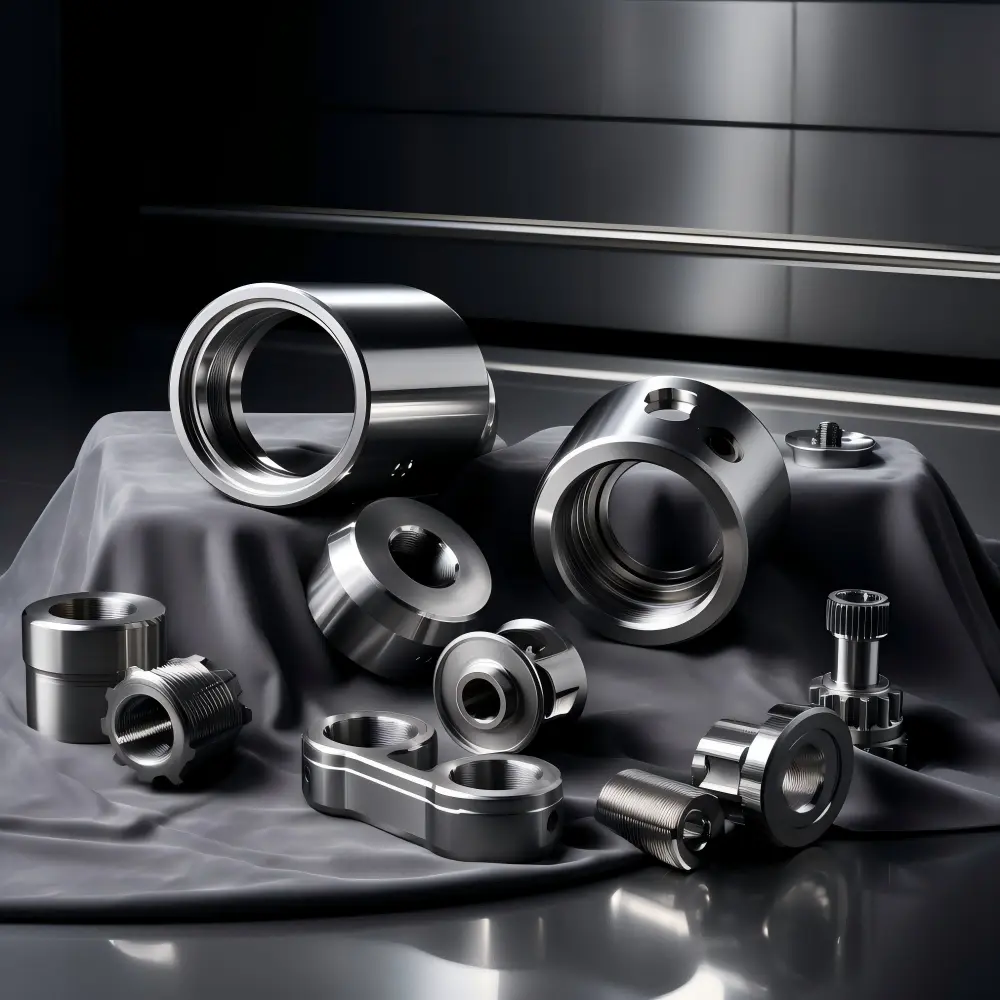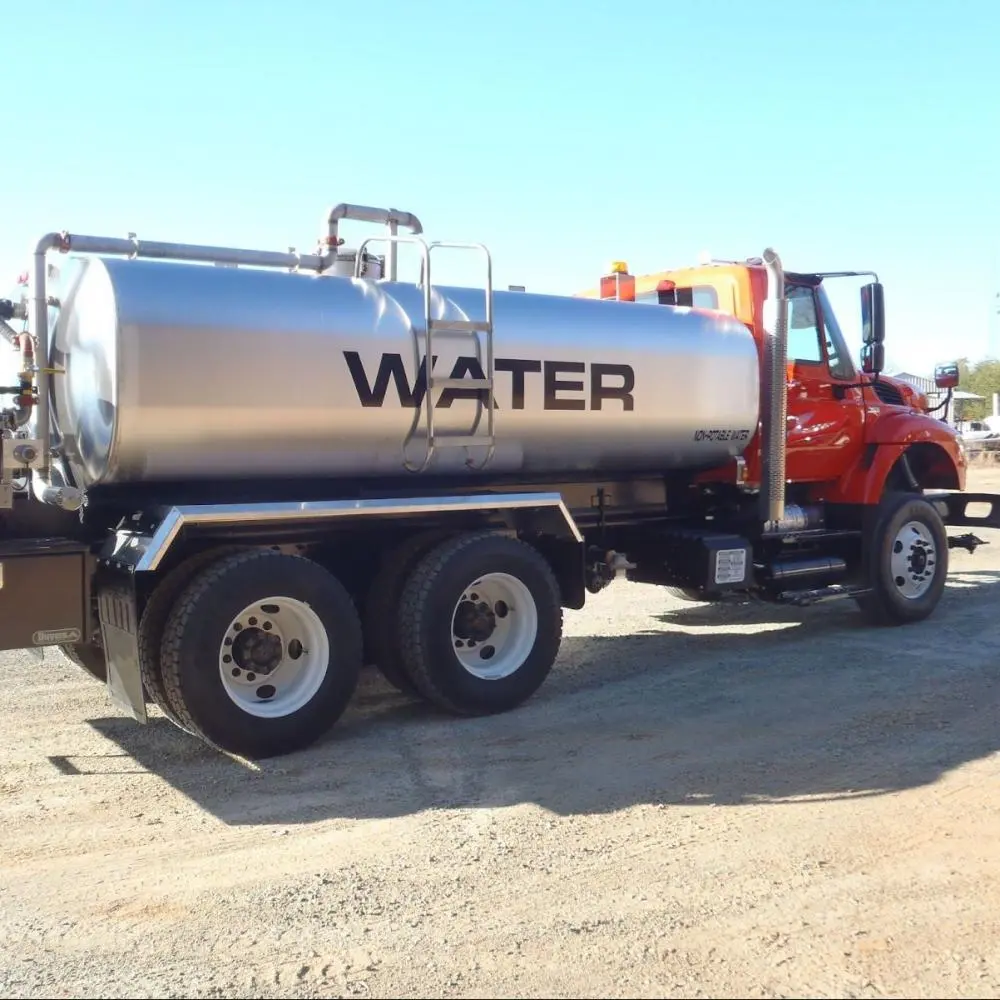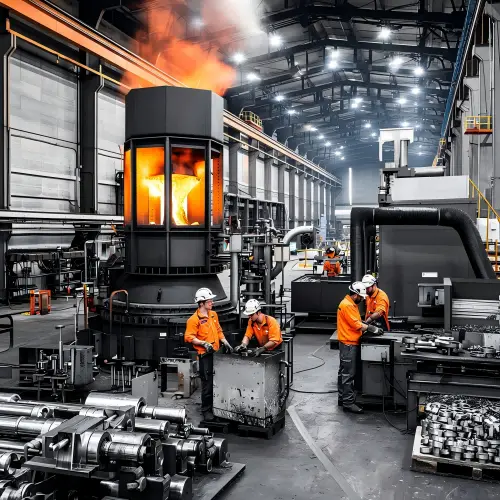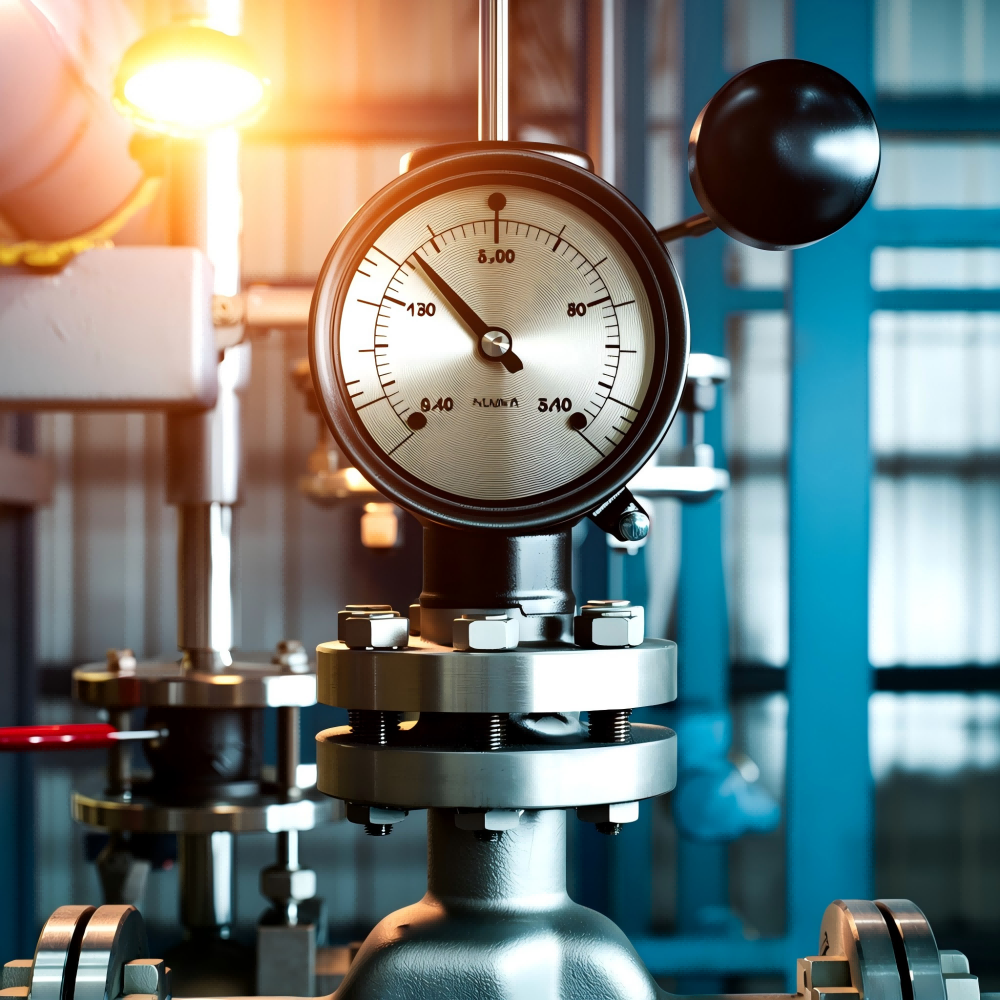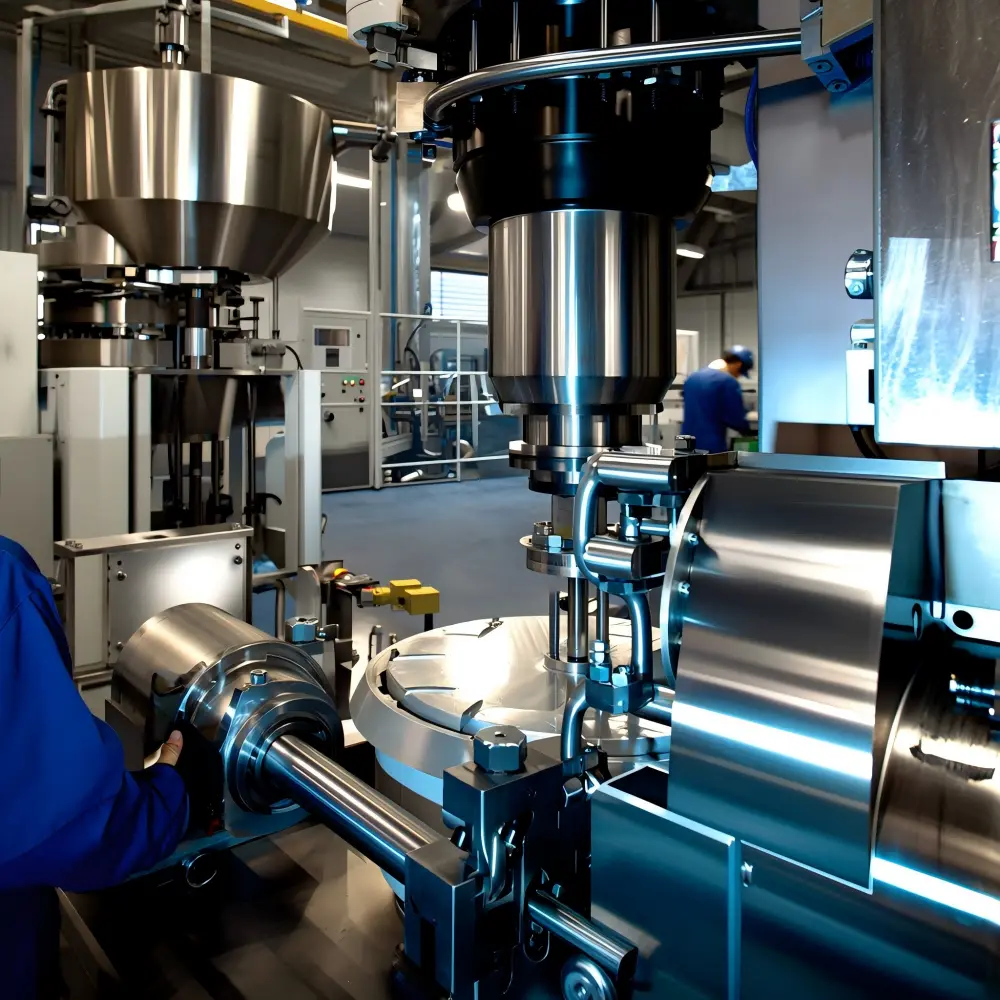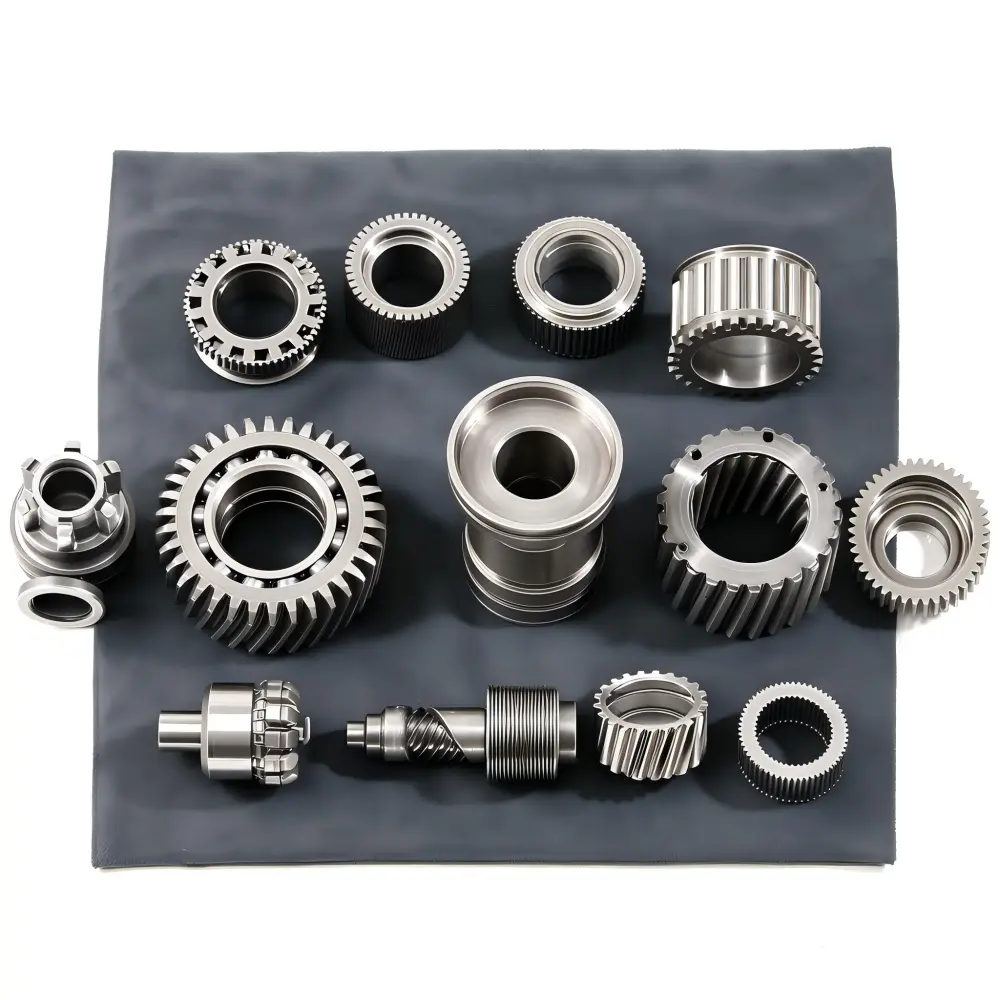How to Find a Trusted Precision Investment Casting Factory for Your Industry
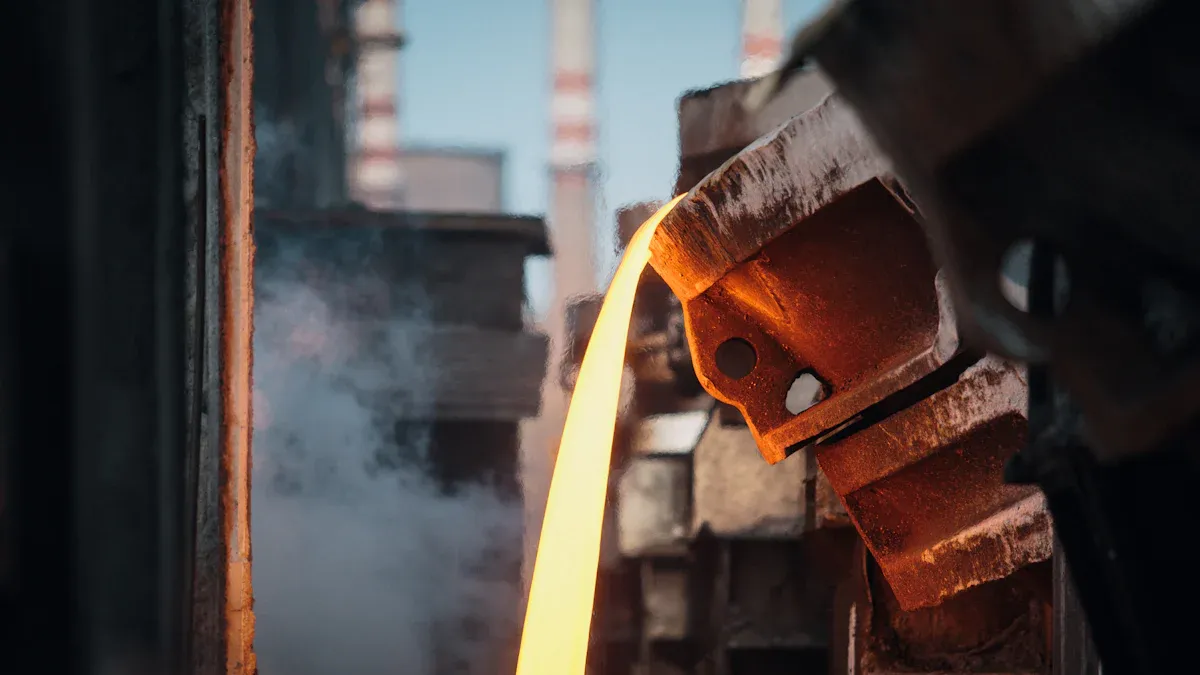
Choosing the right precision Investment Casting factory can transform a business. A trustedprecision casting plant ensures consistent quality, boosts efficiency, and supports long-term growth. For instance, companies that streamline operations with the help of a reliable precision casting factory often see a 15-20% productivity increase. Effective waste management in an investment casting plant can cut costs by up to 30%. So, how can businesses find the ideal supplier for their needs?
Key Takeaways
- Pick a factory instead of a trading company for direct talks and better product checks.
- Look for factories with good quality checks to reduce waste and make great products.
- Visit the factory to see their skills and quality efforts yourself.
Traits of a Reliable Precision Investment Casting Factory
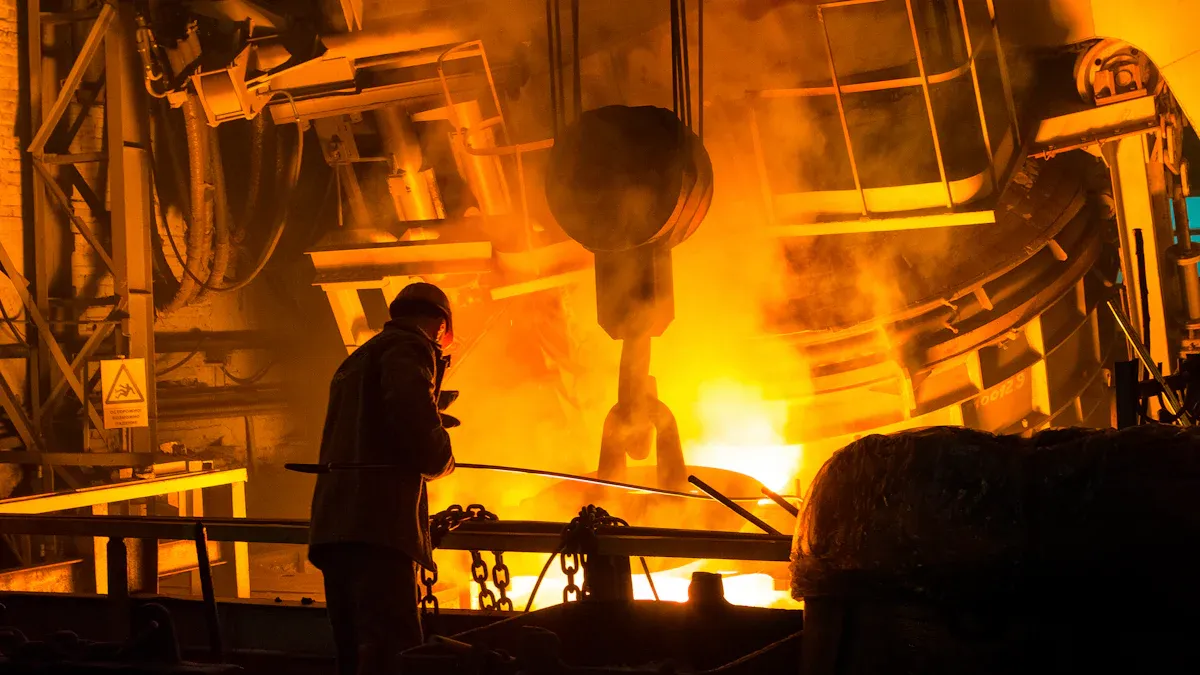
Manufacturing vs. Trading Companies
When choosing a precision investment casting factory, understanding the difference between manufacturing companies and trading companies is crucial. Manufacturing companies handle the entire casting process in-house. They offer technical expertise, better quality control, and direct communication. On the other hand, trading companies act as intermediaries. They purchase castings from manufacturers and resell them to customers. This additional layer can increase costs and complicate communication.
For industries requiring high precision and reliability, working directly with a manufacturer is often the better choice. Manufacturers can tailor solutions to meet specific needs and ensure consistent quality. By eliminating intermediaries, businesses can also save time and reduce expenses.
Quality Assurance Processes
A reliable precision investment casting factory prioritizes quality assurance. Effective processes ensure that finished parts meet design specifications and comply with industry standards like ISO or ASTM. For instance, top-performing factories aim for a scrap rate below 5%, compared to the industry benchmark of 5% to 10%. This focus on quality minimizes waste and reduces costs.
Investment casting is known for its dimensional accuracy, which reduces the need for extensive post-production machining. Factories with robust quality assurance processes deliver components that are both cost-effective and high-performing. On-site visits can also provide valuable insights into a factory’s commitment to quality.
| Metric | Industry Benchmark | High-Performing Target |
|---|---|---|
| Scrap Rate | 5% to 10% | Below 5% |
Use of Advanced Machinery
Advanced machinery plays a vital role in precision investment casting. Automation and AI-powered systems enhance efficiency and ensure consistent quality. For example, robotic systems apply ceramic slurry uniformly, reducing human error and improving repeatability. AI can also optimize casting parameters, such as temperature and cooling rates, resulting in parts with tighter tolerances and superior properties.
Factories using advanced machinery benefit from early defect detection and predictive maintenance. These innovations minimize downtime, reduce waste, and improve overall productivity. Additionally, automation enhances safety by operating in hazardous environments, making it a valuable asset for any precision investment casting factory.
| Benefit | Description |
|---|---|
| Early Defect Detection | AI-powered systems detect defects early, minimizing waste and enhancing product quality. |
| Predictive Maintenance | Algorithms predict equipment failures, reducing downtime and costs. |
| High Precision and Quality | Automation ensures tight tolerances and high-quality surfaces, reducing post-production machining. |
How to Evaluate a Precision Investment Casting Factory
Conducting Facility Visits
Visiting a factory in person offers valuable insights into its operations. Observing the production process firsthand helps assess the factory's capabilities and commitment to quality. Look for clean, organized workspaces and modern equipment. A well-maintained facility often reflects a company's dedication to excellence. During the visit, ask about their defect rate and lead time. For example, a defect rate of 1.5% and a lead time that aligns with your needs indicate strong performance.
Engage with the staff during your visit. Their knowledge and professionalism can reveal a lot about the company culture. A team that understands the intricacies of precision investment casting demonstrates expertise and reliability. Facility visits also allow you to evaluate safety measures, which are critical in ensuring consistent production.
| Metric | Description | Calculation Example |
|---|---|---|
| Defect Rate | Measures the percentage of defective products relative to total produced. | (15 / 1,000) x 100 = 1.5% |
| Lead Time | Total time from order placement to delivery. | Sum of all process stages |
Reviewing Certifications and References
Certifications and references validate a factory's credibility. Look for certifications like ISO 9001, which ensures quality management systems are in place. References from past clients can provide insights into the factory's reliability and performance. When reviewing references, focus on metrics like customer satisfaction scores and on-time delivery rates. A high on-time delivery rate, such as 95%, reflects a factory's ability to meet deadlines consistently.
Additionally, check the factory's quality control measures. These include visual inspections, dimensional accuracy checks, and non-destructive testing. For instance, X-ray inspections can identify internal flaws, ensuring the final product meets your specifications.
| Quality Control Measure | Description |
|---|---|
| Dimensional Accuracy | Adherence to design specifications minimizes post-production machining. |
| Non-destructive Testing | Techniques like X-ray inspections identify internal flaws. |
Assessing After-Sales Support
After-sales support is a crucial factor when choosing a precision investment casting factory. Reliable factories offer ongoing assistance, such as addressing defects or providing replacement parts. This support ensures smooth operations and minimizes downtime. Ask about their response time for resolving issues. A factory with a dedicated support team can save you time and money in the long run.
Consider their willingness to provide technical guidance. Factories that help optimize the use of their products demonstrate a commitment to customer success. Strong after-sales support builds trust and fosters long-term partnerships.
Industry-Specific Expertise in Precision Casting
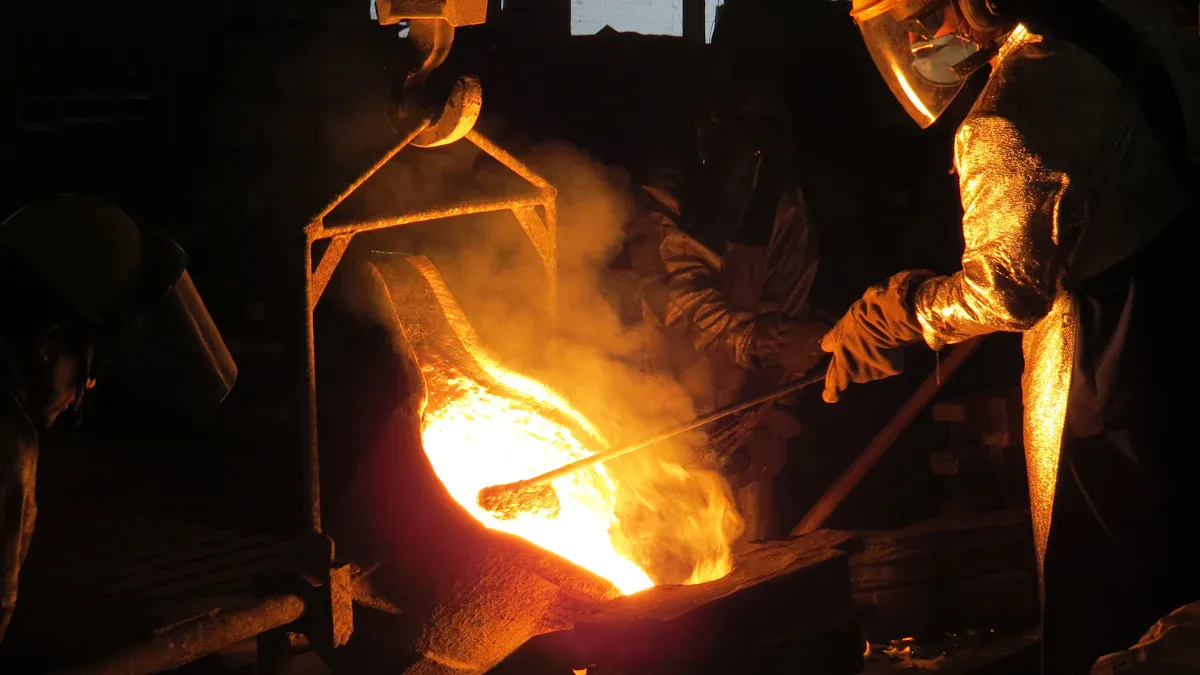
Compliance with Standards
A trusted precision investment casting factory ensures compliance with recognized industry standards. Adhering to standards like ASTM or ISO guarantees that cast components meet strict quality and performance requirements. Factories often conduct rigorous testing to verify compliance. For example, tensile testing evaluates the strength and ductility of materials, while hardness testing ensures wear resistance. Non-destructive methods, such as X-ray inspections, help identify internal flaws without damaging the part.
Chemical composition testing is another critical step. Factories use spectrometry to confirm that alloys meet operational specifications. By maintaining detailed records of these tests, manufacturers can provide transparency and traceability. This commitment to quality builds trust and ensures that components perform reliably in demanding applications.
Tailored Solutions for Different Sectors
Every industry has unique requirements, and a precision investment casting factory must offer tailored solutions to meet them. For instance, the automotive sector often demands lightweight yet durable components. Manufacturers achieve this by using materials like aluminum and titanium alloys. In the medical field, Precision Casting enables the production of custom surgical tools and implants, enhancing patient outcomes.
Factories also leverage advanced technologies to deliver sector-specific solutions. CNC machining ensures precision in automotive parts, while 3D printing allows for custom designs in medical devices. By understanding the needs of each industry, manufacturers can optimize processes and materials to deliver superior results.
| Sector | Components | Materials | Process Improvements | Outcome |
|---|---|---|---|---|
| Automotive | Engine blocks, transmission parts | Aluminum, titanium alloys | CNC machining, robotic automation | Improved performance, reduced weight |
| Medical | Surgical tools, implants | Cobalt-chromium, titanium | 3D printing, AI monitoring | Enhanced outcomes, reduced surgery times |
| Power Generation | Turbine blades, combustor parts | High-temperature nickel | Advanced ceramic shells, robotics | Increased efficiency, extended service life |
Examples of Industry Applications
Precision casting plays a vital role in various industries. In the automotive sector, it is used to produce engine parts and suspension components, ensuring durability and performance. The medical industry relies on precision casting for surgical instruments and prosthetic devices, where accuracy is critical. Military applications include weapon components and vehicle parts, which require strength and reliability.
The aerospace industry, which accounts for over 25% of the investment casting market, demands lightweight and durable components. Similarly, the energy sector uses precision casting for turbine components that withstand extreme temperatures. These examples highlight the versatility and importance of precision casting across diverse fields.
Tip: When selecting a factory, consider its experience in your specific industry. A factory with proven expertise can deliver solutions tailored to your needs.
Finding the right supplier can make or break a business. By focusing on key traits like product quality, production capacity, and after-sale support, companies can ensure long-term success. On-site visits also provide valuable insights into a factory’s operations and reliability.
Ningbo Pingheng Machinery Co., Ltd. stands out as a trusted partner. With decades of experience and expertise across industries, they deliver tailored solutions that meet diverse needs. Start your journey today by researching and reaching out to potential suppliers.
| Key Factor | Explanation |
|---|---|
| Product Quality | High-quality castings are crucial as they impact the performance and safety of final products. |
| After-Sale Support | Warranty provisions and technical assistance are vital for addressing post-purchase needs. |
| Production Capacity | Ensures the manufacturer can meet current and future demands, safeguarding supply chain reliability. |
| On-Site Visits | Provides firsthand insight into operations and commitment to quality, enhancing trust in the manufacturer. |
Tip: A trusted supplier ensures quality, reliability, and peace of mind. Take the first step today!
FAQ
What industries benefit the most from precision investment casting?
Precision investment casting supports industries like automotive, aerospace, medical, and power generation. It delivers durable, lightweight, and high-precision components tailored to specific applications.
How can I verify a factory’s certifications?
Request copies of certifications like ISO 9001. Cross-check their validity through official certification bodies or ask for client references to confirm compliance.
Why is after-sales support important?
After-sales support ensures smooth operations by addressing defects, providing replacements, or offering technical guidance. It builds trust and strengthens long-term partnerships.
Tip: Always ask about response times and warranty terms when evaluating after-sales support.






